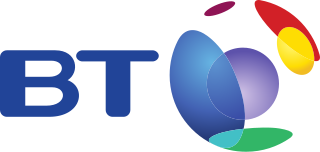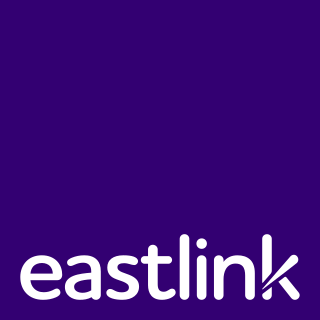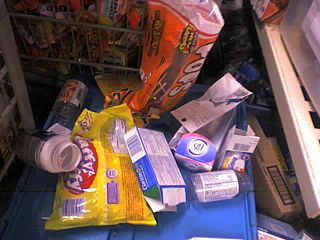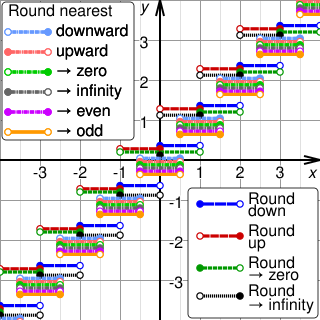
Bell Internet, originally and frequently still called Sympatico, is the residential Internet service provider (ISP) division of BCE Inc.. As of May 3, 2012, Bell Internet had over 3 million subscribers in Ontario and Quebec, making it the largest ISP in Canada.

Bell Mobility Inc. is a Canadian LTE and HSPA+ based wireless provider and the division of Bell Canada which sells wireless services across Canada. Bell Mobility and its affiliates combined have 9.5 million subscribers as of the end of Q3 2018, making it Canada's second largest wireless carrier.

A gift card is a prepaid stored-value money card usually issued by a retailer or bank to be used as an alternative to cash for purchases within a particular store or related businesses. Gift cards are also given out by retailers and marketers as part of a promotion strategy, to entice the recipient to come in or return to the store, and at times such cards are called cash cards. Gift cards are generally redeemable only for purchases at the relevant retail premises and cannot be cashed out, and in some situations may be subject to an expiry date or fees. Visa and MasterCard credit cards produce generic gift cards which need not be redeemed at particular stores, and which are widely used for cashback marketing strategies. A feature of these cards is that they are generally anonymous and are disposed of when the stored value on a card is exhausted.

Fido Solutions Inc. is a Canadian cellular telephone service provider owned by Rogers Communications. Although Fido's parent company, Rogers Communications, also operates another cellular service Rogers Wireless, Fido remains a separate entity and retains its own retail chain, customer service call centres, network servers and CEO. Fido pioneered the concept of providing unlimited service in select Canadian cities. Fido was the first carrier in Canada to launch a GSM-based network and the first wireless service provider in North America to offer General Packet Radio Service (GPRS) on its network.

A prepaid mobile device is a mobile device such as a phone for which credit is purchased in advance of service use. The purchased credit is used to pay for telecommunications services at the point the service is accessed or consumed. If there is no credit, then access is denied by the cellular network/Intelligent Network. Users can top up their credit at any time using a variety of payment mechanisms.
TracFone Wireless, Inc. is a prepaid mobile virtual network operator in the United States, Puerto Rico, and the US Virgin Islands. TracFone Wireless is a subsidiary of Mexico's largest telecommunications company América Móvil, and offers products and services under several other brands. It operates as a mobile virtual network operator (MVNO), holding agreements with the United States' largest wireless network operators to provide service using their networks, including Verizon Wireless, AT&T Mobility, T-Mobile US, Sprint Corporation, and U.S. Cellular. TracFone Wireless had 25.668 million subscribers in 2015.
Sprint Canada is a defunct Canadian telecommunications service provider from 1993 to 2005, when it was acquired by Rogers Communications. Sprint offered both residential and business services. It was a key company in the long distance wars of Canada.

BT Mobile is a mobile virtual network operator (MVNO) provided by BT Consumer; a division of BT Group in the United Kingdom that was launched in March 2015. It uses the EE network via an MVNO agreement signed in March 2014 as well as using the spectrum BT won in the 2013's 4G auction. EE is now owned by BT following a successful acquisition that was officially completed on 29 January 2016. BT Mobile operates alongside BT Business Mobile which is provided by the BT Business and Public Sector division. BT Mobile launched as a SIM-only service and had more than 400,000 customers as of 5 May 2016.

Slingshot is the third largest telecommunications company in New Zealand. It has an approximately 16% market share of the New Zealand fixed telephone landline and residential broadband market.

Koodo Mobile is a Canadian mobile flanker brand started by Telus in 2008 and mostly oriented toward younger customers. Koodo differs from its parent Telus by not requiring a fixed term contract. Koodo currently provides postpaid, prepaid, and wireless home phone services. Being a subsidiary of Telus, Koodo has been able to offer extensive coverage and a strong presence in mobile retailers. This allowed Koodo to gain a presence nationwide.

Data and Audio-Visual Enterprises Wireless, d/b/a Mobilicity, was a Canadian mobile virtual network operator owned by Rogers Communications. Its name was a portmanteau of the words "mobility" and "simplicity". Mobilicity was one of several new mobile network operators, along with Public Mobile and Wind Mobile, which launched in Canada after a government initiative to encourage competition in the wireless sector. The carrier had over 250,000 Mobilicity subscriptions on May 16, 2013, the day in which Telus announced its failed attempt to acquire Mobilicity. The subscription count decreased to 157,000 by April 2015 according to court documents filed by Mobilicity's Chief Restructuring Officer in that month.

Chatr Mobile is a Canadian mobile virtual network operator owned by Rogers Communications targeting entry-level customers. It is one of three wireless brands owned by Rogers Communications, including Rogers Wireless, and Fido Solutions. The provider launched its service in Toronto, Ottawa, Calgary, Edmonton, Vancouver, Quebec City, and Montréal under the name Chatr Wireless on July 28, 2010. The company re-branded to its current name in 2015.
Simple Mobile is a prepaid mobile virtual network operator headquartered in Miami, Florida, in the United States and became a subsidiary of America Móvil after it was acquired in June 2012. SIMPLE Mobile has activated more than 2.5 million subscribers since they opened in November 2009. They provide wireless voice, messaging and data services in the United States as a T-Mobile US MVNO.

Republic Wireless is an American mobile virtual network operator that sells low cost mobile phone service which defaults to Wi-Fi. When Wi-Fi is unavailable, Republic falls back on partnerships with two national cellular networks, either T-Mobile or Sprint. It is based in Raleigh, North Carolina. They currently do not support any Apple iPhone.

Eastlink Wireless is a Canadian mobile network operator owned by Eastlink. Its built network serves the provinces of Nova Scotia and Prince Edward Island, with additional coverage areas provided in New Brunswick, Ontario and Alberta communities.

Mobile by Sainsbury's was a mobile virtual network operator (MVNO) in the UK, operated by Sainsbury's between July 2013 and January 2016, using the Vodafone UK network.
Google Fi is an MVNO telecommunications service by Google that provides telephone calls, SMS, and mobile broadband using cellular networks and Wi-Fi. Google Fi uses networks operated by Sprint, T-Mobile, U.S. Cellular, and Three.
Un-carrier is a marketing campaign by T-Mobile US and its advertising company Publicis. It debuted in March 2013, where the company introduced a new streamlined plan structure for new customers which drops contracts, subsidized phones, coverage fees for data, and early termination fees. Generally, the advertised marketing promotions will expire when a new "Un-Carrier" event is announced. Occasionally, the promotion is dropped all together. Such as with T-Mobile's "Mobile Without Borders" feature in UnCarrier 3.0. The feature provided unlimited service to customers visiting in Mexico and Canada. When T-Mobile couldn't continue to support the feature, customers were given 32 days notice that the service promotion ended, and the feature would be removed from all existing accounts. A replacement feature was available, but also required an increase in price by first changing rateplans and adding features for additional fees. T-Mobile announced the change to its customers through a press release.

Circles.Life is a digital telecommunications operator, launched in Singapore in May 2016. Circles.Life offers post-paid mobile services to customers.


















